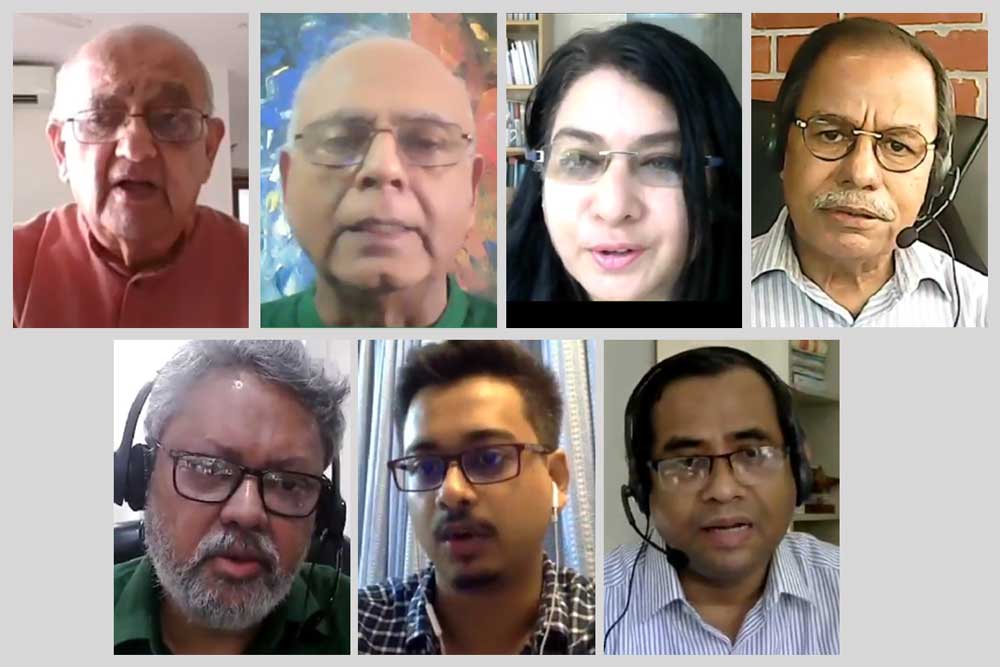
The South Asian region is not on track to achieve SDG4 2030 goals of universal, quality and inclusive secondary education and a major expansion of lifelong learning – including early childhood development and functional literacy. Undertaking a technical analysis of education backwardness of the region – why the system was failing, how it could be put back on track — we discovered that educational deficits persisted for not lack of technical solutions; absence of political settlements prevented implementation of good solutions. Technical merits of policy and strategy choices were important, but the political dynamics determined if these would be implemented and to what extent.
The aim is to generate a public discourse — helping to move towards a consensus and a social compact. A balance has been tried between the large picture and probing deeper into subsectors and across-sector issues. A continuation of the lack of political consensus, commitment and will to make hard choices is clearly evident. Like-minded citizens, political and social activists, professionals and human rights promoters should unite to move forward an inclusive, equitable and quality education agenda.
These observations emerged at the virtual discussion on the book titled, “Political Economy of Education in South Asia: Fighting Poverty, Inequality and Exclusion”. The discussion was organised by the Centre for Policy Dialogue (CPD) and held on 13 April 2022.
Dr Manzoor Ahmed, Emeritus Professor, BRAC University drawing on this book co-authored with Professor John Richards and Mr Shahidul Islam, University of Toronto Press, 2022, spoke on current, medium-term and longer-term education challenges in Bangladesh. He recommended to recognise the central role of the education system in building a progressive and democratic polity in Sonar Bangla; that GDP growth and mega projects are not enough; and that education must be protected from short-sighted politics. A comprehensive education sector plan should be designed for 2030 with a 2041 perspective; some work has been done with hesitant govt. participation; a Permanent Education Commission, anticipated in 2010 policy, should guide the process as the guardian of the education system. All school education should come under one Ministry within a decentralized governance structure. Education governance should be decentralized with regulatory frameworks covering state, private and hybrid institutions, all upholding ‘public good.’ A new state initiative is needed to attract the best talents in education profession, creating a national teaching service corps. The state should take the lead in building a social compact for education guided by the four pillars of the constitution — democracy, nationalism, socialism and secularism — giving these contested concepts a progressive, humane, and liberal interpretation.
Professor Syed Manzoorul Islam, Member, CPD Board of Trustees, Professor, English and Humanities, ULAB, Formerly with Department of English, University of Dhaka stated that, “quality teachers produce quality students”. He appreciated the recommendation of the authors for a national pool of teachers and added that the university students with highest quality must be retained as teachers. Techers have to be the role models for their students and the role of culture in society and inculcating values and ethics must be important concerns in education, he suggested.
Dr Binayak Sen, Director General, Bangladesh Institute of Development Studies (BIDS) pointed out that household poverty is a big barrier to primary and secondary education and the highest rate of drop-outs is from the marginalised community. He posed the question whether the demand for quality education would be stronger with growth and technological change in economic sectors such as industries and services. He thought a South Asia dialogue on the political economy of education theme should be held, which BIDS would be interested in hosting.
Stating role of parents and teachers, Mr Eresh Omar Jamal, Assistant Editor, The Daily Star stressed on the importance in the education system of helping create self-reliant learners and capitalising on curiosity of children. He further mentioned concerns over politicisation of university and muzzling freedom of thinking and expression in academia.
Professor Rehman Sobhan, Chairman, CPD chaired the session. He opined that the market demand has taken over the classical disciplines in the private education system. Professor Sobhan stated that this is causing students to enter the mainstream with low quality education. In his closing remarks, he said that growing inequality in society and the education system further reinforcing disparities is the greatest educational challenge in South Asia including Bangladesh. The three-way division of schools with madrasas for the poor, vernacular schools for the middle class, and the English medium schools with external certification for the elite reflects the prevailing fault lines in society. The decision-makers – politicians, upper echelons of the bureaucracy and the business people — are quite comfortable with the status quo. He suggested undertaking studies about what kind of schools the children of parliament members, members of FBCCI and those in higher civil service go to in order to understand what stakes they have in the national school system.
Dr Fahmida Khatun, Executive Director, CPD delivered the welcome remarks and Dr Khondaker Golam Moazzem, Research Director, CPD moderated the session.
The dialogue was also attended by academics and experts, civil society members, international development partners, and media representatives, several of whom joined in a lively open discussion.

